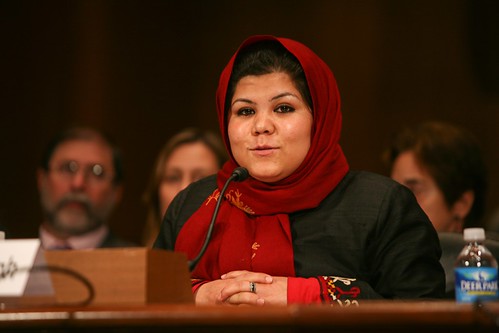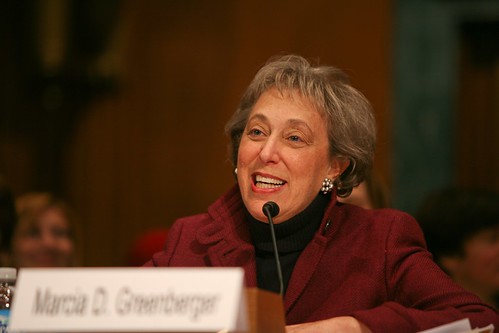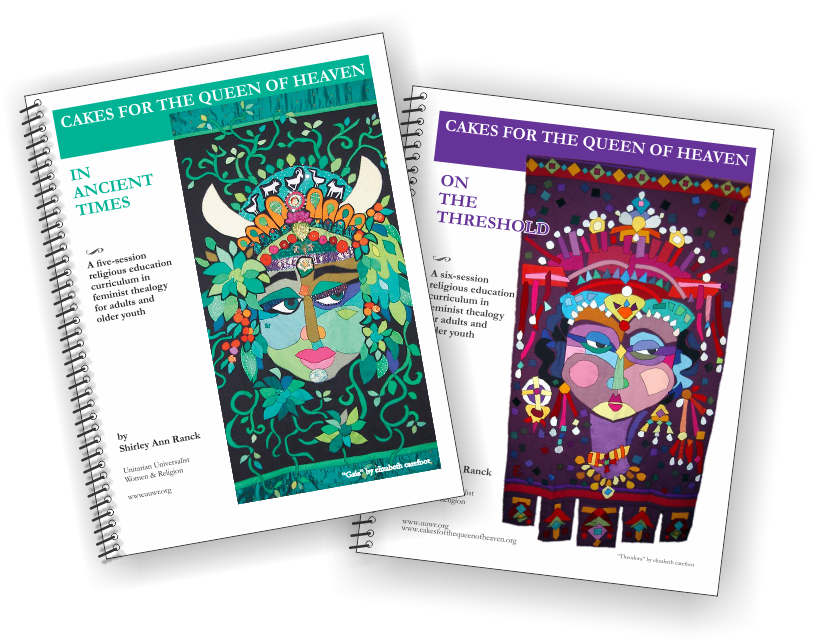December 3, 2010
There are significant “if’s”, but I feel hope that the Senate’s “lame duck” session could find enough bi-partisanship to ratify the women’s treaty, after 30 years of us working on this! Since WOMUUNWEB has given continuing coverage of this issue throughout the years, I will only add that it looks like we women of the United States would most gain clout to close the pay gap, reduce domestic violence and stop trafficking if CEDAW, the U.N. Convention for the Elimination of All Forms of Discrimination Against Women treaty, were ratified for our use. We would gain more strategies from the blueprint this women’s treaty gives. Now, as we follow the news of this treaty going to the Senate floor for a vote, we must keep in mind that the Senators have to deal with the START treaty ratification first.November 18, I was so glad I put in the effort to travel to the Dirkson Senate Office Building for the CEDAW hearing, Arriving off the elevator into the large crowd (in two halls of the hearing room floor), delighted me almost to tears. Such happily pitched music from female talk greeted me. So many were so young! And they all seemed to be excitedly expectant of the best outcome from the hearing. I believed I truly belonged to the crowd’s flow of positive energy when I was given my “CEDAW 2010” sticker to wear.
The friendly woman handing out the stickers began talking with three young women, standing in line in front of me. I noted how pleased she was to hear they came from City University of New York, CUNY. When I interviewed those same three women, I learned they were graduate student lawers. The one to graduate in December had been to Haiti to work on sexual violence. She was in Haiti to represent a grassroots organization. Their CUNY Clinic works on international women’s issues, but not as a NGO (non-governmental organization.) These women had traveled to the hearing by bus for the day. No wonder the CEDAW Working Group woman, handing out stickers, was so warmly welcoming toward them. She said only 100 or so attendees were expected and not from so far away. The hearing room couldn’t hold us all. I heard there were around 200 of us!
I, also, waited with a young man who stood behind me. We amused ourselves by observing the extent of the surprise people expressed as they got off the elevator to join us. My interview with the man uncovered that he has worked for the last several years on the U.N. Commission on the Status of Women. When I asked him about the pace of progress, I added the assumption that most of the roadblocks must be caused by cultural mindsets. He replied that was part of the scene, but much had, literally, to do with the retention of focus on the problems.
The friendly Working Group woman was by the hearing room door when my part of the line was being ushered down the long hall to an overflow room. My knees, after traveling there, earlier, and then standing on the marble hall floor for an hour could not go the distance to the overflow room. I parked myself by the hearing room door with the hope someone would come back out, thus giving me a possible seat, if I could get in the door. Thanks to the friendly woman giving me a helpful push, I got through the door when it opened to allow a blind woman entry. Being a single, I was lucky to get a front row seat.
The Chairman, Senator Durbin, was giving his opening remarks. He spoke of his dismay that so many women’s troubles are brought about by, simply, exercising their basic human rights. Senator Spector, in his opening remarks, told us there was a paycheck fairness bill that didn’t get through with enough votes, yesterday, and that, now, the START Treaty has the Senate’s focus. The other Senators on the Senate Judiciary Subcommittee on Human Rights and the Law had sent their aides to take notes for them.
The Honorable Melanie Veneer spoke of the moral imperative of the 21st century being to stand with the rights of women around the world. Now, with CEDAW still needing to be ratified by the U.S., we hold the same status as Iran, Sudan, Somalia, Nauru, Palau, and Tonga.
The next to give testimony was Samuel Bagenstos, who said that the example of how useful passage of the U.S. Violence Against Women Act is. That kind of justice brought by the Federal government is better because such work is hard for state governments to carry out. Since the Act passed, his department has prosecuted 2,600 cases using the VAW Act.
Senator Durbin, then, clarified that the U.N. CEDAW Committee is purely advisory and its treaties and suggestions aren’t binding on the U.S., legally. It only has the power that we cede to it. Past treaties we’ve ratified haven’t presented legal obstacles for us. CEDAW can give us the leverage to be a constant prod for obeying our own laws. CEDAW’s not self-executing. Would we have to change any existing laws? No.
Actor, Geena Davis of the Geena Davis Institute on Gender in Media, included in her testimony the fact that the U.S. was instrumental in writing the CEDAW women’s treaty. The focus in Geena’s philanthropic work is to make sure girls are valued the same as boys.
 Afghan Women’s Network’s Wazhma Frogh spoke of her childhood experiences of “being kept under control.” This treatment as a girl gave rise for her adult quest to improve girls’ and women’s lot in life. She spoke about Afghanistan’s new constitution and CEDAW’s guidance for how to address women’s rights. She said that CEDAW gives ongoing help in the application of Afghanistan’s laws. (photo copyright 2010 Jim Wells Photography)
Afghan Women’s Network’s Wazhma Frogh spoke of her childhood experiences of “being kept under control.” This treatment as a girl gave rise for her adult quest to improve girls’ and women’s lot in life. She spoke about Afghanistan’s new constitution and CEDAW’s guidance for how to address women’s rights. She said that CEDAW gives ongoing help in the application of Afghanistan’s laws. (photo copyright 2010 Jim Wells Photography)
Steven Groves from the Heritage Foundation spoke as “the devil’s advocate.” He sees CEDAW as a tool for social engineering that is based on stereotyping with particular contempt for the role of mothers. He feels support of abortion is inferred as worthwhile in CEDAW. He seeks a cost/benefit analysis of what U.S. interests CEDAW supports. “If it doesn’t help the United States, we don’t like it,” Mr. Groves concluded.
 Marcia Greenberger, Co-President of the National Women’s Law Center, stated that the evidence that 10,000 U.N. treaties show is proof that CEDAW is not able to override our Constitution and laws. Also, there is plenty of evidence for how CEDAW has benefitted men and boys as well as all adults. The U.S. needs to implement CEDAW for the sake of U.S. leadership worldwide. Research, based on TV viewing, shows negative impressions of being a woman develop in girls as belonging to a sex with limited opportunity when they become adult. Also, this same influence contributes to boys developing sexist attitudes. Women’s rights are an important factor in societal stability, no matter the cultural context. (photo copyright 2010 Jim Wells Photography)
Marcia Greenberger, Co-President of the National Women’s Law Center, stated that the evidence that 10,000 U.N. treaties show is proof that CEDAW is not able to override our Constitution and laws. Also, there is plenty of evidence for how CEDAW has benefitted men and boys as well as all adults. The U.S. needs to implement CEDAW for the sake of U.S. leadership worldwide. Research, based on TV viewing, shows negative impressions of being a woman develop in girls as belonging to a sex with limited opportunity when they become adult. Also, this same influence contributes to boys developing sexist attitudes. Women’s rights are an important factor in societal stability, no matter the cultural context. (photo copyright 2010 Jim Wells Photography)
I felt during this day’s hearing, that it was appropriate for the Senate Judiciary Subcommittee to hold it. It was their first ever hearing on the ratification of a human rights treaty. However, I felt disconcerted when Senator Durbin engaged in a cross-examination foray after Steven Groves testified. It was evident to me that Senator Durbin’s aides had “dug up a significant amount of dirt” from Mr. Groves’ past writings. To me, Senator Durbin’s main purpose was to “make him squirm in his seat” in our crowd that was, obviously, pro-CEDAW. Senator Durbin was civil, but mean in how he played “the Washington Game” of partisanship.
Well, the Senator did succeed in getting all that negative information into the record. Afterward, he did tell Mr. Groves he appreciated his testimony and sympathized with the uncomfortable position Mr. Groves was put into. The CEDAW movement’s groundbreaking effort is the only international human rights treaty to focus on the rights of women. As with the women’s suffrage movement, which took 72 years to come to fruition, we have to expect this CEDAW struggle to be difficult for all concerned. It is encouraging, though, to see that CEDAW is one of the most ratified treaties in the world.



